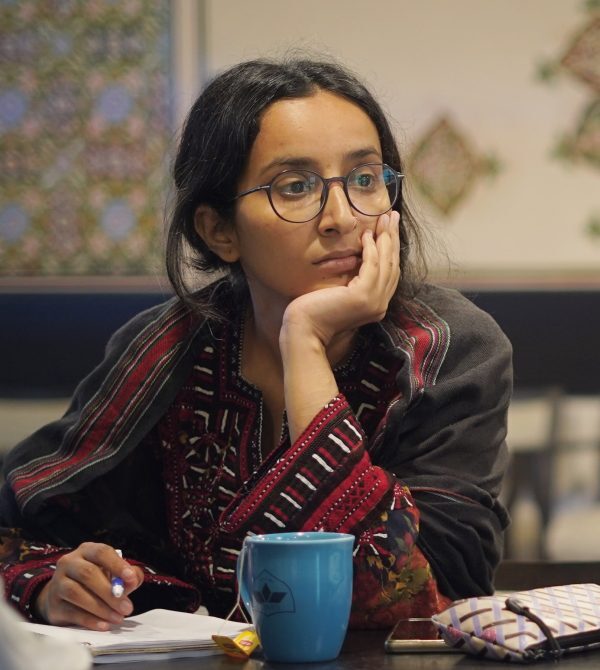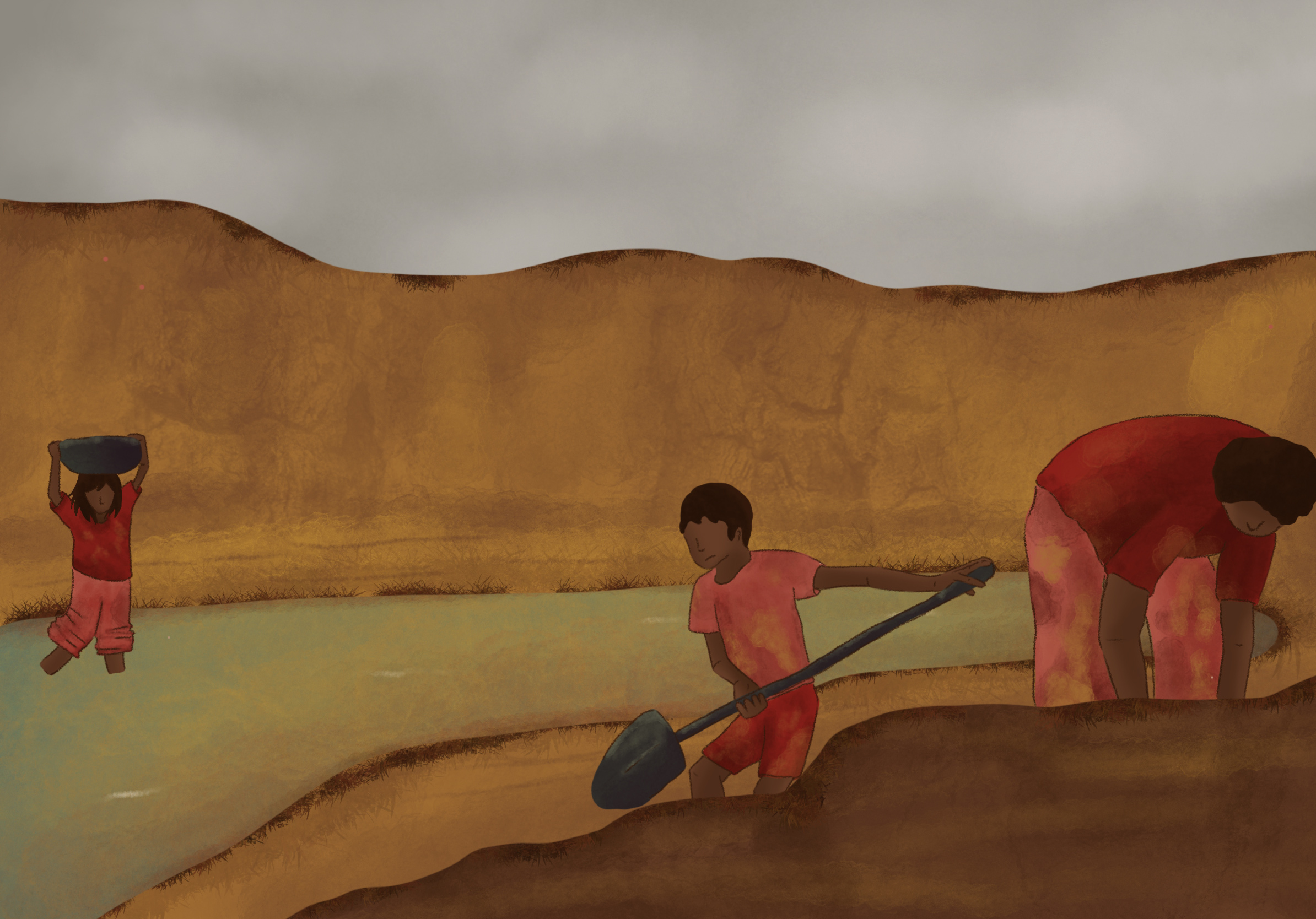Pakistan’s untold war: No justice for Balochistan’s disappeared
by Somaiyah Hafeez
Kambar* couldn’t tell if it was day or night. The silence in the window-less, high-ceilinged room was broken only by the sounds of frogs croaking at night and the occasional plane taking off. Sometimes he’d hear the azaan, the Muslim call to prayer, in the distance.
Kambar is from Turbat, a city in Pakistan’s troubled province of Balochistan. Kambar worked as a sales agent, and had been pursuing a postgraduate degree at a university in Karachi. That was before he was abducted near his workplace in May 2019.

“They threatened me to confess [to] being a part of the militancy, [or] they would kill me and dump my body,” he said. Kambar was detained in Malir Cantonment, a military base in Karachi.
He was eventually released five months and seven days later, but remained under surveillance. Suffering from PTSD caused by the incident, he wasn’t able to complete his postgraduate degree and eventually left Pakistan to seek asylum abroad.
Kambar is one of the thousands who have been picked up, or disappeared, from Balochistan. Unlike him, many never make it back.
The violent and insidious practice of enforced disappearances is used as a tool by the Pakistani government to quell resistance and suppress dissent. It dates back to the 1970s; once adopted in Nazi Germany and a common tactic used by military dictatorships throughout history, it is still a serious problem across the world, from Kashmir and Syria, to Laos and Bangladesh.
Enforced disappearances typically occur under the guise of a state’s counterinsurgency or counterterrorism policy, which in reality aims to spread terror among society. While they commonly occur in situations of armed conflict, they also happen when people are internally displaced, or even in settings with no apparent turmoil.
The practice is particularly brutal and widespread in Pakistan’s southwestern province of Balochistan. Since 1948, when Balochistan became a part of Pakistan, separatists have fought government forces over greater political autonomy and outright succession. The resource-rich province is also the country’s most impoverished, with the majority of Balochs living below the national poverty line.
Although the Asian Human Rights Commission has stated that enforced disappearances are a “routine occurrence in Pakistan” and the “normal practice of law enforcement”, the Pakistani military has denied that it conducts secret abductions in Balochistan. “Our hearts beat with [the] families of every missing person. We share their pain and we are with them in the process of tracing them,” said Asif Ghafoor, the then-Director General of Inter-Services Public Relations, the media wing of the Pakistan Armed Forces.
However, public complaints have prompted the government to form the Commission of Inquiry on Enforced Disappearances in 2011. But families of missing persons say the Commission has done nothing but add to their worries.
According to Voice for Baloch Missing Persons, a non-profit organisation representing family members of the disappeared in Balochistan, approximately 7,000 cases have been registered with them since 2004. The Human Rights Council of Balochistan, which started in 2016 and tracks the number of enforced disappearances on the ground and from Baloch media, documents hundreds of cases every year. However, “there is no acknowledgement [from the government] of enforced disappearances in the province,” said Abdullah Abbas Baloch, Information Secretary of the Human Rights Council of Balochistan.
Hina Jilani, chairperson of the Human Rights Commission of Pakistan, an independent non-profit human rights organisation, said in an interview with Kontinentalist that there are no reliable estimates of the number of people who have been forcibly disappeared in Balochistan, but there is clearly an enormous discrepancy between official estimates and reports on the ground.
According to the government-initiated Commission of Inquiry on Enforced Disappearances, around 10,000 cases in Pakistan have been registered with them since its formation in 2011, of which almost 2,700 have been from Balochistan. But as of December 2023, only 300 cases were actively being investigated. In the first nine years of its formation, no single perpetrator had been brought to justice, reports the Guardian.
“The Commission discarded almost 60% of the [Baloch] cases, stating that they [are not considered] enforced disappearances,” said Nasrullah Baloch, the chairman of Voice of Baloch Missing Persons. He added that in situations where a court order to produce the missing person was not met, the Commission would declare that the case was not an enforced disappearance, instead of continuing the investigation.
Activists say that most of the cases that the Commission claim to have resolved, either by tracing the disappeared or discrediting the case as an enforced disappearance, involve finding mutilated bodies of the missing people. In July 2023, Pakistan’s Counter Terrorism Department claimed it had killed nine terrorists in an encounter, but five were identified by their families to be previously missing persons. The department was once again accused of killing three missing persons in “fake encounters” in Kharan.
Additionally, an increasing trend of “short-term” disappearances have posed another challenge—people are abducted for several days or weeks and then released. In some cases, they are forcibly disappeared a second time. The erratic nature of these incidents mean that they are sometimes not reflected in the figures collected by civil society organisations.
According to Abdullah of Human Rights Council of Balochistan, activists are not able to work as freely as they would like. Some towns and villages are so remote and inaccessible that it affects the documentation of missing persons. Activists also understandably fear the risk of being targeted and disappeared.
Anwar-ul-Haq Kakar, Pakistan’s current caretaker Prime Minister, recently said in an interview to the BBC: “There are only 50 cases of enforced disappearances in Balochistan as per the UN’s working group.” Kakar, who is said to be close to the military, had previously suggested that the numbers presented by activists and human rights organisations were “exaggerated”.
Left in the dark, families of the disappeared wait years or even decades to learn of their fate.
Saifullah Rodeni was allegedly picked up by security intelligence on 21 November 2013 from Khuzdar, a city in Balochistan. Since then, his sister Farzana has tried everything to find her brother. “It has been 10 years—I have heard no news of my brother. I have adopted all legal means but the law in Pakistan is deaf and mute. There were eyewitnesses but they were threatened not to testify,” Farzana said in an interview with Kontinentalist. When the family decided to file a police report, also known as a First Information Report, they were told that cases could not be filed against security agencies.
Sometimes it takes years of appearing in front of Joint Investigation Teams for the Commission to recognise a case as an enforced disappearance. “On 24 May 2023, after more than a year’s struggle, the case of my father, Abdul Hameed Zehri, was registered with the Commission,” shared Saeeda Hameed Zehri. Abdul was taken away on the night of 10 April 2021. He was finally released on 31 October 2023.
In another case, Saira Baloch’s brother, Asif, and cousin, Rasheed, were picked up on 31 August 2018 along with eight other friends from a picnic spot in Nushki, Balochistan. According to her, everyone was released except Asif and Rasheed. “When I appeared before the Commission and told them about my brother’s friends and mentioned that they wouldn’t testify due to security concerns, I was asked to give their details, and that the Commission would take care of their safety and get a testimony. However soon after they were made to sign a statement saying they do not know Asif and Rasheed,” said Saira, who is still campaigning for their release.
Ruksana Baloch was only 11 when her brother Azeem Dost was abducted from his friend’s shop in Gwadar city, along with another friend. The friend was released after nine months, but her brother is still missing.
“His friend told me that he was kept with my brother for three days and then the two were separated. They were severely beaten,” Ruksana, now 20, told Kontinentalist on the phone as her voice cracked. She was unable to stop her tears; her brother had told her that he couldn’t bear seeing her tears because if she cried, he would too. “He was a caring son and brother.”
In the past nine years, Ruksana has attended rallies and protests, and taken every legal measure available to her, but she still hasn’t heard any news of her brother. Like her, many others await desperately for some news of their loved ones.
With thousands of their male family members missing for years and more continually picked up, Baloch women have been leading a peaceful movement demanding an end to enforced disappearances. The most recent movement was sparked by the state’s killing of Balaach Mola Bakhsh, 24, on 23 November 2023. This led activists Sammi Deen Baloch and Mahrang Baloch, both of whom have fathers who have been disappeared by the state, to start a massive protest movement in Turbat, the city where Balaach was from.
Balaach’s family claimed that he was taken by the Counter Terrorism Department on 29 October 2023 from his home. His whereabouts were unknown until he was presented in the courts nearly a month later, charged for carrying explosives. Balaach’s bail plea was scheduled for 24 November 2023, but he was killed in a fake encounter a day before. The department claimed it had killed terrorists from a “proscribed group”. Within a few days, the movement that started as a sit-in in Turbat turned into a 1,600km-long march to the country’s capital of Islamabad.
Despite the state’s crackdown, which included tear gas attacks and arrests, Baloch women continued to sit outside the National Press Club to demand an end to enforced disappearances. Almost a hundred victims’ families spent a month camped outside the club in the unbearable winter cold, holding pictures of their missing loved ones. Many had travelled from remote towns and villages to demand answers.
However, these women-led efforts have been marred by the recent rise in female suicide bombers. On 26 April 2022, school teacher Shari Baloch became the first Baloch female suicide bomber, attacking a van carrying Chinese academics outside Karachi University. The attack shocked many, and was followed by another female suicide bombing in Turbat in June 2023. Unfortunately, this sparked an increase in crackdown against Baloch women.
“[If] it weren’t for the evolution in the Baloch insurgency with the introduction of female insurgents, the state wouldn’t have had any excuses to crackdown on or arrest leading Baloch female activists, declaring them as suspected suicide bombers,” commented a Baloch journalist under the condition of anonymity.
Many believe that resolving the epidemic of enforced disappearances has to be the starting point for Pakistan to right its many wrongs, especially against the Baloch community. Human rights defenders call for the release of all those who are missing, and for those who have charges against them to be presented in front of the courts.
Pakistan needs to have a legal framework that criminalises enforced disappearances. In 2021, when former Prime Minister Imran Khan was in power, a bill was passed in Parliament. However, by 2022 the bill had infamously gone “missing" after being sent to the Senate.
Without thorough legislation, there is no effective way to deter states from continuing the practice of enforced disappearances. As long as there are no consequences for state actors and others complicit in these crimes, perpetrators can carry on with complete impunity.
For the families of the disappeared, their lives remain in limbo. With no answers, they face continuous uncertainty about the fate of their loved ones, and a permanent disruption of their daily lives and livelihoods. It is clear that enforced disappearances are not just a violation of the basic rights of individuals, but also of entire generations and their communities.









